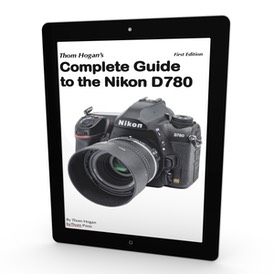(commentary)
Besides all the other problems the camera industry has to face, it seems that photography is just a constant source of serious social issues, so much so that it keeps getting banned. Here’s just a partial list of the various ways in which the practice of photography keeps getting narrowed:
- Selfie sticks no longer allowed in many places, including Disney properties.
- Restrictions and bans on drones and drone photography in multiple spaces, including National Parks.
- Crackdowns on the practice of photography in public and private places in the name of “terrorism security”.
- Restrictions on shooting governmental properties, originally just military bases, but slowly extended to most anything (see previous bullet).
- Airlines, malls, and other commercial businesses claiming Copyright or privacy protections against use of cameras.
- Trees, castles, and rock formations that have claimed Copyrights or Trademarks and thus claims you can’t take photos of them.
- Bans on the use of tripods and flash that are claimed to be for safety purposes, but most often for which actual evidence doesn’t exist.
- Sports, music, and other performances banning either cameras outright or imposing some sort of “if it looks professional you can’t bring it” ban.
- Parents chasing off anyone photographing anywhere near a child, even if they aren’t photographing the child, and sometimes even if the child isn’t theirs.
- Public servants (police officers, firefighters, etc.) performing their duties who insist that they can’t be photographed. Worse: public servants quoting laws that don’t exist to terminate photography when it might embarrass them.
- Laws against photographing chickens, farms, mines, and other endeavors, enacted to product industry practices from being documented.
- If the camera is mounted on your glasses, you’re apparently banned from using it in some bars. Had Google Glass been more popular, this ban would have been extended to lots of other places.
- the list goes on and on, so I’ll just stop here...
Funny thing is, smartphones are so ubiquitous and so small, many of those bans just aren’t enforceable against them in their natural state (e.g., without selfie stick), especially if they’re used discriminatingly.
I’m all for privacy, but privacy doesn’t exist in public spaces as far as I’m concerned. Indeed, I’d argue that even in private spaces (malls, for example), that if you’re open for and soliciting business to the public, you’re a public space. As for Copyright, placing artwork in open public spaces (e.g. Architecture) probably ought to convey some sort of Fair Use right to the public, though in Europe we’re seeing just the opposite start to happen. FWIW, I no longer visit and thus don’t photograph in two countries because of national laws regarding photography. Be careful what you wish for, Mr. Bureaucracy; laws often have unintended consequences. As in reducing my interest in visiting your country.
About half of this site’s readers actively practice some form of travel photography, either during vacations or while traveling for business. Note how many of the restrictions on photography start to apply against those that are traveling (locally or farther afield). It’s always easy to impose laws on people who don’t vote for you. it’s why rental car and hotel room taxes are so high, after all.
What prompted this article, though, wasn’t any of the latest photography ban talk, though. Here in Pennsylvania we have fairly restrictive regulations on “recording” another person (e.g. conversations, phone calls, meetings, etc.). In some states, it only takes one party to consent for a recording to be legal. Here in Pennsylvania it takes all parties to consent to being recorded.
Or so I thought until an article appeared in this Sunday’s local paper about a case that was just dismissed by the court. The interview with the judge was illuminating, as it disclosed the interpretation of a piece of the law that I hadn’t been aware of: “if a reasonable person would believe someone else could hear what they’re saying, there is no expectation of privacy.”
It seems to me that we need to approach the ability to photograph in a similar fashion. Coupled with “police [have no right to arrest unless the subject is] truly interfering with law enforcement activities” and you have a founding basis for how we ought to be handling photography in public places. Add in that public spaces in private endeavors shouldn’t be held to the same standard as the truly private places in commercial enterprises, and I think you could put together some sort of a Photographers’ Manifesto.
But that’s not happening yet. What’s happening right now is that this urge to tell other people what they can and can’t do is spilling over into the practice of photography. And it’s turning into laws that are just plain bad. There’s plenty of room for debate and negotiation on the issues that get raised around photography, but it’s rarely happening. As fewer and fewer of us buy cameras and practice serious photography, I fear that there will never be an open dialogue to try to resolve the few issues that there are with photography as it is typically practiced.
Readers reminded me of several documents that you might want to review and carry with you:
- New York City Operations Order — Issued to officers as a reminder of what they can and can’t do in New York City vis-a-vis photography.
- Attorney Bert Krages’ PDF — Summarizes your rights when stopped or confronted about photography.





